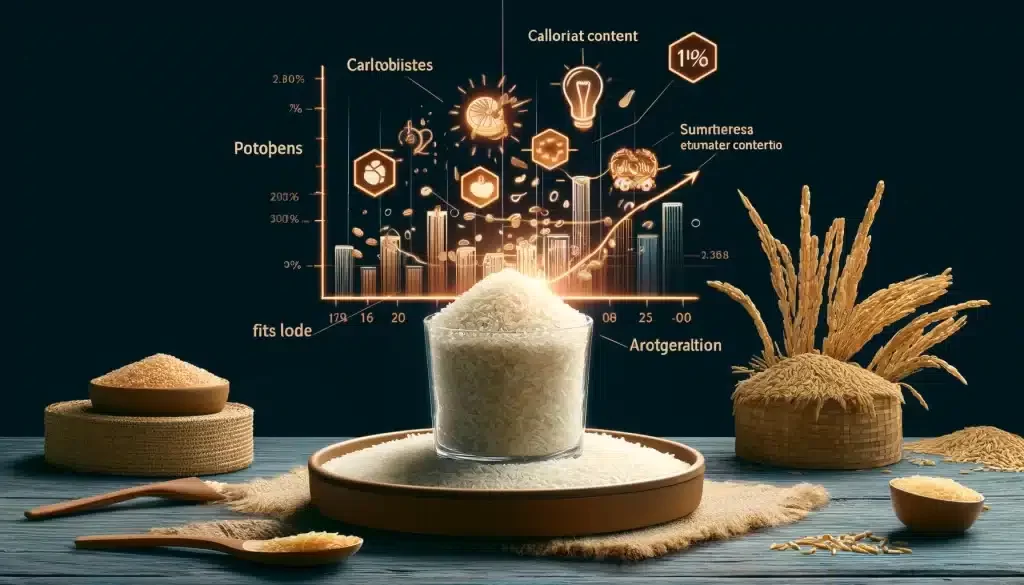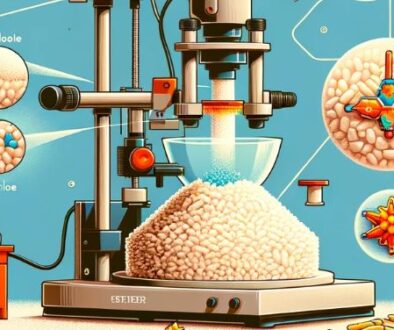Study On The Correlation Between Caloric Value And Nutrient Changes Of Rice With Different Storage Years
This post explores the impact of long-term storage on rice’s nutrient content, revealing a 9% nutrient loss and its implications.
In rice stored for 1 to 6 years, the content of the three major nutrients (carbohydrates, fats, and proteins) is constantly declining, with a 9% loss of nutrients. There is a positive correlation between carbohydrate amount and caloric value. This binary value is negatively correlated with the storage life.
Abstract:
Recent research has highlighted a critical aspect of rice storage, emphasizing the gradual decline in the content of the three primary nutrients – carbohydrates, fats, and proteins – over a period of 1 to 6 years. This decline is quantified at an average loss of 9% of the nutrients, showcasing a significant reduction in the nutritional value of stored rice. Additionally, the study underlines a positive correlation between the carbohydrate content and the caloric value of rice, which inversely correlates with the storage duration. This paper delves into the implications of these findings for food storage practices and nutritional planning.
Introduction:
Rice, as a staple food for more than half of the world’s population, plays a pivotal role in global food security and nutrition. However, the effectiveness of rice in fulfilling nutritional needs is contingent upon its storage conditions and duration. Recent findings indicate a concerning trend of nutrient loss in rice stored over periods ranging from one to six years. This study aims to explore the magnitude of nutrient degradation in stored rice and its implications for dietary planning and food security policies.
Nutrient Degradation in Stored Rice:
The research reveals a consistent decline in the essential nutrients of rice – carbohydrates, fats, and proteins – with extended storage. Specifically, a cumulative loss of 9% in these critical nutrients was observed over the 1 to 6 year storage period. This degradation impacts not only the caloric value of the rice but also its overall nutritional quality, which is vital for meeting the dietary needs of populations dependent on rice as a primary food source.
Correlation between Carbohydrate Content and Caloric Value:
The study further identifies a direct positive correlation between the carbohydrate content of rice and its caloric value. Carbohydrates, being the primary source of energy in rice, contribute significantly to its total caloric output. Therefore, the reduction in carbohydrate content due to prolonged storage directly affects the energy value of rice, making it less efficient as a dietary staple.
Impact of Storage Duration on Rice Quality:
An intriguing aspect of the study is the negative correlation between the binary value of carbohydrate amount and caloric value with the storage life of rice. This finding suggests that the longer rice is stored, the greater the loss in its nutritional and caloric value. This has profound implications for food storage practices, especially in regions where rice is stored for extended periods due to surplus production or for use in emergency food reserves.
Conclusion:
The decline in nutrient content in stored rice over time poses significant challenges for nutritional planning and food security. This research underscores the need for optimizing rice storage conditions to minimize nutrient loss and for revising dietary guidelines to account for the diminished nutritional value of stored rice. Additionally, it highlights the importance of developing strategies to ensure the availability of nutritionally rich rice to meet the dietary needs of populations relying on it as a staple food. Future research should focus on identifying innovative storage technologies and methods that can preserve the nutrient content of rice for longer periods, thereby enhancing food security and nutritional outcomes globally.
For futher details of this article and research, feel free to contact our team for assistance.
Original research was done by Bai Mingliang, Hua Limin, Zhang Xiaoji, Zhou Xiuyan, Zhang Zhanru, Yao Linjie, An Ning
About ETprotein:
ETprotein, a reputable plant protein vegan protein Chinese factory manufacturer and supplier, is renowned for producing, stocking, exporting, and delivering the highest quality organic bulk vegan protein and plant proteins. They include Organic rice protein, clear rice protein, pea protein, clear pea protein, oat protein, watermelon seed protein, pumpkin seed protein, sunflower seed protein, mung bean protein, peanut protein, various of plant peptides etc. Their offerings, characterized by a neutral taste, non-GMO, allergen-free attributes, cater to a diverse range of industries. They serve nutraceutical, pharmaceutical, cosmeceutical, veterinary, as well as food and beverage finished product distributors, traders, and manufacturers across Europe, USA, Canada, Australia, Thailand, Japan, Korea, Brazil, and Chile, among others.
ETprotein specialization includes exporting and delivering tailor-made protein powder and finished nutritional supplements. Their extensive product range covers sectors like Food and Beverage, Sports Nutrition, Weight Management, Dietary Supplements, Health and Wellness Products, and Infant Formula, ensuring comprehensive solutions to meet all your protein needs.
As a trusted company by leading global food and beverage brands and Fortune 500 companies, ETprotein reinforces China’s reputation in the global arena. For more information or to get a free sample of their protein products, please contact them and email sales(at)ETprotein.com today.












